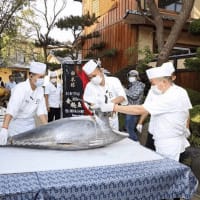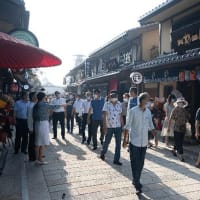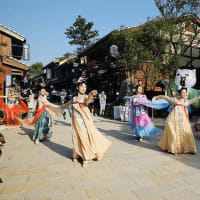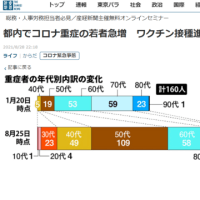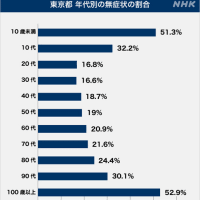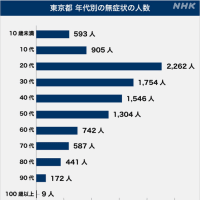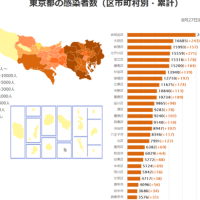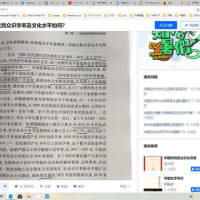Tsunami and radiation may sink Japanese fishermen
(Agencies)
Updated: 2011-03-26 21:55
Comments(0) PrintMail
Large Medium Small
KESENNUMA, Japan- The tsunami that slammed Japan two weeks ago wiped out homes, businesses and a fishing industry that was the lifeblood for thousands of victims on the northeast coast.
The tsunami erased aquatic farms just offshore along with low-lying seaside areas that are home to fleets fishing along the coast, while a nuclear plant in Fukushima leaking radiation has raised concerns about marine life in the region over the longer term.
"Fishermen lost their gear, ships and just about everything. About half will probably get out of the business," said Yuko Sasaki, a fishmonger in the tsunami-hit city of Kamaishi.
Sasaki has been cleaning the family store, where a water line at about five metres high marks where the tsunami struck. She expects to be back in business well before most fishermen from the area.
"The question remains: what did the tsunami do to the sea?"
In Iwate, it probably destroyed aqua farms for abalone, sea urchins, oysters, scallops and seaweed that the local government says account for 80 percent of the revenue for local fisheries.
Yuichi Sato, 66, a retired civil servant, said the Iwate town of Yamada, with a population of 20,000, has no other industry but fishing and aquaculture.
"The main industry is raising scallops and all the beds were completely wiped out," he said as he prepared a dinner over a wood fire at a makeshift home some 800 metres from the coast.
"The only way to bring it back will be with huge subsidies and investment from the government," he said.
The coastal fishing industry provides tens of millions of dollars a year to Iwate fishermen, a paltry sum compared with the estimated $300 billion damage in what is probably the world's costliest natural disaster.
The tsunami obliterated centuries-old fishing ports along the northeast coast, sending ships adrift in the Pacific Ocean, to the bottom of the sea, or depositing them on land, where they now lie among the splintered remains of homes.
"Our tourism and fishing industries were picking up before the quake hit. Now they are completely destroyed," said Yuji Shirahata, who heads a disaster relief team on the island of Oshima in Kesennuma in the coastal prefecture of Miyagi.
Even if fishing returns, it may be difficult to find buyers due to radiation concerns.
In Fukushima prefecture, radioactivity levels are soaring in seawater near the Daiichi power plant that was crippled in the disaster, Japan's nuclear safety agency said on Saturday.
"After this kind of disaster, sea urchins and abalones could be contaminated. So we need to collect all of those and start all over again. We have to reset the sea," said Masashi Sasaki, 40, a fisherman in Iwate.
(Agencies)
Updated: 2011-03-26 21:55
Comments(0) PrintMail
Large Medium Small
KESENNUMA, Japan- The tsunami that slammed Japan two weeks ago wiped out homes, businesses and a fishing industry that was the lifeblood for thousands of victims on the northeast coast.
The tsunami erased aquatic farms just offshore along with low-lying seaside areas that are home to fleets fishing along the coast, while a nuclear plant in Fukushima leaking radiation has raised concerns about marine life in the region over the longer term.
"Fishermen lost their gear, ships and just about everything. About half will probably get out of the business," said Yuko Sasaki, a fishmonger in the tsunami-hit city of Kamaishi.
Sasaki has been cleaning the family store, where a water line at about five metres high marks where the tsunami struck. She expects to be back in business well before most fishermen from the area.
"The question remains: what did the tsunami do to the sea?"
In Iwate, it probably destroyed aqua farms for abalone, sea urchins, oysters, scallops and seaweed that the local government says account for 80 percent of the revenue for local fisheries.
Yuichi Sato, 66, a retired civil servant, said the Iwate town of Yamada, with a population of 20,000, has no other industry but fishing and aquaculture.
"The main industry is raising scallops and all the beds were completely wiped out," he said as he prepared a dinner over a wood fire at a makeshift home some 800 metres from the coast.
"The only way to bring it back will be with huge subsidies and investment from the government," he said.
The coastal fishing industry provides tens of millions of dollars a year to Iwate fishermen, a paltry sum compared with the estimated $300 billion damage in what is probably the world's costliest natural disaster.
The tsunami obliterated centuries-old fishing ports along the northeast coast, sending ships adrift in the Pacific Ocean, to the bottom of the sea, or depositing them on land, where they now lie among the splintered remains of homes.
"Our tourism and fishing industries were picking up before the quake hit. Now they are completely destroyed," said Yuji Shirahata, who heads a disaster relief team on the island of Oshima in Kesennuma in the coastal prefecture of Miyagi.
Even if fishing returns, it may be difficult to find buyers due to radiation concerns.
In Fukushima prefecture, radioactivity levels are soaring in seawater near the Daiichi power plant that was crippled in the disaster, Japan's nuclear safety agency said on Saturday.
"After this kind of disaster, sea urchins and abalones could be contaminated. So we need to collect all of those and start all over again. We have to reset the sea," said Masashi Sasaki, 40, a fisherman in Iwate.












